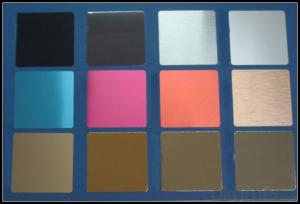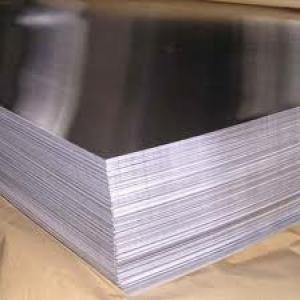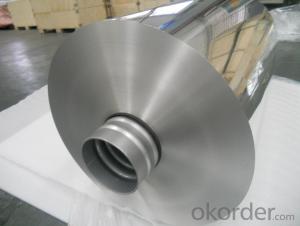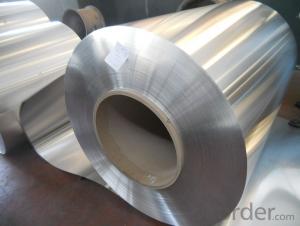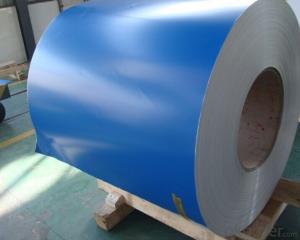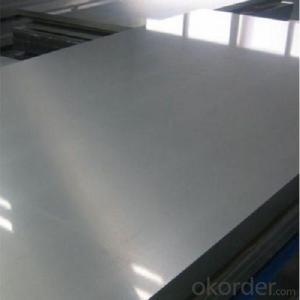PVDF Color Coating Aluminium Sheet for Building Curtain Walls
- Loading Port:
- Shanghai
- Payment Terms:
- TT OR LC
- Min Order Qty:
- 5 m.t.
- Supply Capability:
- 10000 m.t./month
OKorder Service Pledge
OKorder Financial Service
You Might Also Like
Item specifice
1. Specification of PVDF Color Coating Aluminium Sheet for Building Curtain Walls
ALLOY | AA1050 AA1060 AA1070 AA1100 ETC AA3003 AA3004 AA3005 AA3104 AA3105 ETC AA5005 AA5052 AA5083 AA5754 ETC AA8011 AA8006 AA8079 ETC |
TEMPER | H14,H16,H18,H22,H24,H26,H32,O/F |
THICKNESS | 0.03MM-3.0MM |
WIDTH | 30mm-1700mm |
COIL WGT | 2Mt - 3Mt |
COIL ID | φ508mm,φ610mm |
SURFACE | PE ,PVDF , EPOXY,16-25MICRON PAINTING THICK, MAX 40MICRONS |
STANDARD | GB/T 17748-1999 |
2. Application of PVDF Color Coating Aluminium Sheet for Building Curtain Walls
(1).Interior: wall cladding, ceilings, bathrooms, kitchens and balconies, shutters, doors...
(2).Exterior: wall cladding, facades, roofing, canopies, tunnels,column covers , renovations...
(3).Advertisement: display platforms, signboards, fascia, shop fronts...
3. Feature of PVDF Color Coating Aluminium Sheet for Building Curtain Walls
Surfact Quality :
Be free from Oil Stain, Dent, Inclusion, Scratches, Stain, Oxide Dicoloration, Breaks, Corrosion, Roll Marks, Dirt Streaks and other defect which will interfere with use,
Mechenical Property:
Chemical Composite and Mechanical Property
4. Certificate:
SGS and ROHS(if client request, paid by client), MTC(plant provided), Certificate of Origin(FORM A, FORM E, CO), Bureau Veritas and SGS (if client request, paid by client), CIQS certificate
5. Image of PVDF Color Coating Aluminium Sheet for Building Curtain Walls
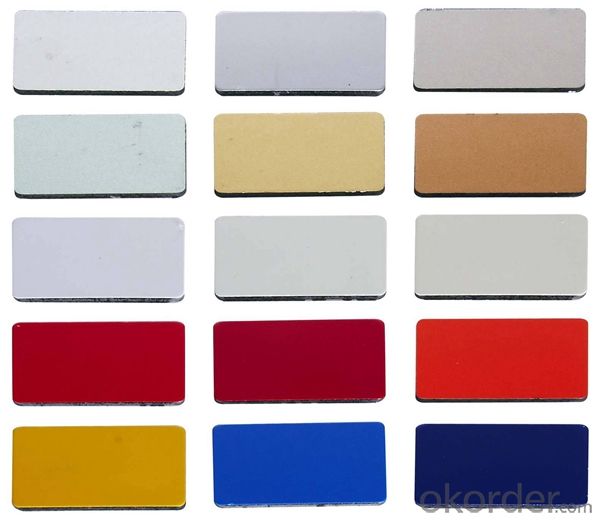
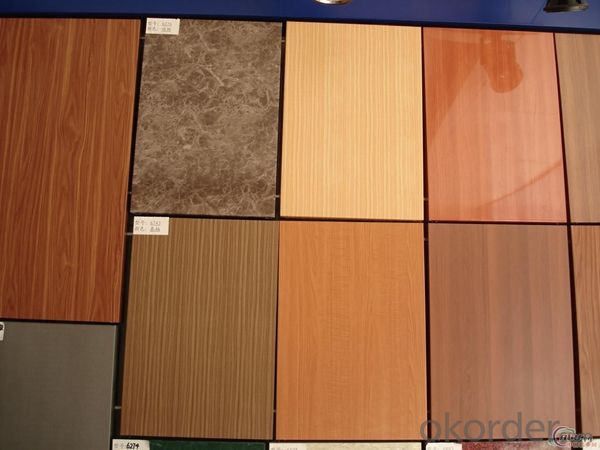
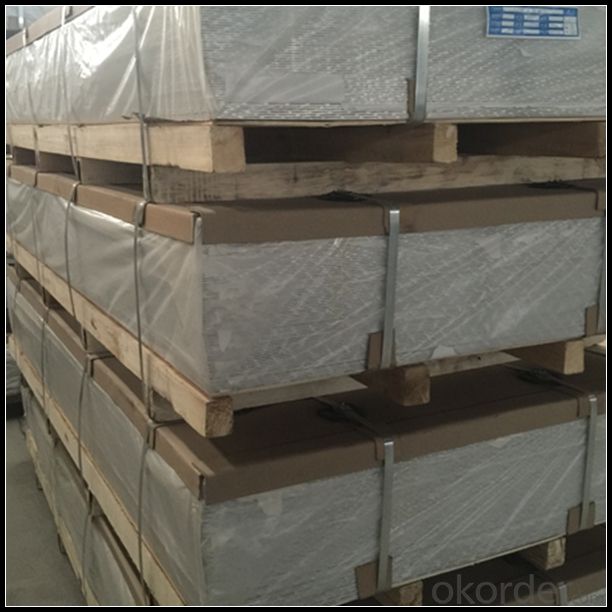
6. Package and shipping of PVDF Color Coating Aluminium Sheet for Building Curtain Walls
First, plastic cloth with drying agent inside; Second, Pearl Wool ; Third, wooden cases with dry agent , fumigation wooden pallets, aluminum surface could cover blue PVC film
7. FAQ
1) What is the delivery time?
Dpends on actual order, around 20 to 35 days
2)What is the QC system:
We have QC staff of 20 persons and advanced equipment, each production is with MTC traced from Aluminum ingot lot.
3) What market do you mainly sell to?
Australia, America, Asia, Middle East, Western Europe, Africa etc
- Q:Are aluminum sheets suitable for outdoor use?
- Indeed, aluminum sheets are well-suited for utilization outdoors. With its exceptional durability and resistance to corrosion, aluminum emerges as an optimal material for outdoor purposes. Despite its lightweight nature, aluminum exhibits remarkable strength, enabling it to endure severe weather conditions including rainfall, snowfall, and the harmful effects of UV radiation. Furthermore, aluminum sheets can be coated or painted, amplifying their resistance to corrosion and furnishing supplementary safeguarding against environmental elements. Consequently, aluminum sheets have garnered significant popularity in the domain of outdoor construction, signage, roofing, and various other exterior applications where endurance and longevity are paramount.
- Q:What paint is better to paint on the brushed aluminum sheet? Simple process and good adhesion!
- Car paint is better, you can go to the auto paint repair department to buy a little, but pay attention to two points: 1., the oil on the aluminum alloy solvent cleaning. 2. can not spray thick, otherwise it will rise.
- Q:What is the thickness of the aluminum sheets?
- Depending on the specific product or application, the thickness of the aluminum sheets may vary. Aluminum sheets come in a diverse range of thicknesses, typically varying from 0.006 inches (0.15 mm) to 0.25 inches (6.35 mm) or possibly even thicker. The suitable thickness will be determined by the specific requirements and intended usage of the aluminum sheet.
- Q:Are aluminum sheets easy to clean?
- It is generally a simple task to clean aluminum sheets. Aluminum, being a non-porous material, has the advantage of not readily absorbing liquids or stains. Consequently, it is fairly easy to remove dirt, dust, or spills from the surface of aluminum sheets with the use of a moist cloth or sponge. Furthermore, aluminum's resistance to rust and corrosion means that no special cleaning agents or treatments are necessary. However, it is worth noting that abrasive cleaners or scrubbing pads should be avoided as they have the potential to scratch the aluminum surface. In summary, by regularly maintaining and employing proper cleaning techniques, aluminum sheets can be kept clean and in excellent condition for an extended period of time.
- Q:What are the limitations of using aluminum sheet?
- There are several limitations associated with using aluminum sheet in various applications. Firstly, aluminum is a relatively soft metal compared to other options such as steel or titanium. This means that it is more susceptible to scratches, dents, and deformation under heavy loads or impacts. Therefore, it may not be suitable for applications that require high strength or resistance to damage. Secondly, aluminum has lower thermal conductivity compared to other metals. This can be a disadvantage in applications where efficient heat transfer is crucial, such as in heat exchangers or cooling systems. Thirdly, aluminum is prone to corrosion. Although it has a natural oxide layer that provides some protection, it can still corrode in certain environments, especially in the presence of moisture or acidic substances. This limits its use in applications where corrosion resistance is vital, such as marine or chemical industries. Additionally, aluminum is a relatively expensive material compared to other options. Its production and extraction processes require significant energy and resources, contributing to higher costs. Therefore, it may not be the most cost-effective choice for some applications. Lastly, aluminum has limited compatibility with certain substances. It can react with certain chemicals, resulting in degradation or contamination. Therefore, it may not be suitable for applications where it will come into contact with substances that can cause adverse reactions. Overall, while aluminum sheet has numerous advantages such as its lightweight nature, good electrical conductivity, and ease of fabrication, it is important to consider its limitations when selecting it for specific applications.
- Q:Are aluminum sheets suitable for insulation and soundproofing?
- Aluminum sheets are indeed suitable for insulation and soundproofing purposes. This lightweight and durable material possesses high reflectivity, effectively blocking heat and sound transmission. When utilized as insulation, aluminum sheets serve as radiant barriers that reflect heat away from the insulated area, thus contributing to a comfortable temperature. Moreover, aluminum sheets can also function as a soundproofing material, effectively reducing noise transmission. Due to its dense structure, aluminum aids in absorbing and dampening sound waves, making it an effective solution for minimizing noise pollution. Additionally, aluminum sheets are resistant to corrosion and moisture, making them appropriate for both indoor and outdoor applications. In conclusion, aluminum sheets offer a cost-effective and efficient solution for insulation and soundproofing requirements.
- Q:Are aluminum sheets suitable for HVAC systems?
- Yes, aluminum sheets are suitable for HVAC systems. Aluminum is a lightweight and durable material that provides excellent thermal conductivity, making it ideal for use in HVAC systems. It is commonly used for making ductwork, heat exchangers, and fins in air conditioning units. Aluminum sheets are corrosion-resistant, which is advantageous in environments with high humidity or exposure to moisture. Additionally, aluminum is a recyclable material, making it an environmentally friendly choice for HVAC systems. Overall, aluminum sheets offer numerous benefits and are widely used in the HVAC industry.
- Q:Can aluminum sheets be used for kitchen backsplashes?
- Kitchen backsplashes can indeed utilize aluminum sheets. Aluminum, a versatile and durable material, finds common use in various applications, including kitchen backsplashes. It boasts several advantages, such as its lightweight nature, resistance to corrosion, and ease of cleaning. Aluminum sheets are also easily cut and installed, making them a favored choice for contemporary kitchen designs. Moreover, they come in a wide array of finishes and colors, allowing homeowners to discover a style that complements their kitchen décor. In conclusion, aluminum sheets serve as an exceptional option for kitchen backsplashes, thanks to their practicality, aesthetic appeal, and ability to withstand the demands of a bustling kitchen environment.
- Q:Can aluminum sheets be used for heat exchanger fins?
- Absolutely, heat exchanger fins can indeed make use of aluminum sheets. Aluminum stands out as a favored option for heat exchanger fins owing to its remarkable thermal conductivity, lightweight attributes, and resistance to corrosion. The utilization of aluminum fins enables efficient heat transfer to take place between the fluid and its surroundings. Moreover, aluminum sheets can be effortlessly molded into diverse fin shapes and sizes, allowing for a great deal of design flexibility. All in all, aluminum sheets prove to be a fitting and frequently employed material for heat exchanger fins.
- Q:Can the aluminum sheets be used for manufacturing chemical reaction vessels?
- Yes, aluminum sheets can be used for manufacturing chemical reaction vessels. Aluminum is a versatile material that offers several advantages for this purpose. It is lightweight, durable, and has excellent corrosion resistance, making it suitable for containing various chemicals and reacting with them. Moreover, aluminum is relatively easy to shape and form into the desired vessel design, allowing for flexibility in manufacturing. However, it is important to note that aluminum may not be suitable for all chemical reactions, especially those involving highly corrosive or reactive substances. In such cases, alternative materials that can withstand the specific reaction conditions may be more appropriate.
1. Manufacturer Overview |
|
|---|---|
| Location | |
| Year Established | |
| Annual Output Value | |
| Main Markets | |
| Company Certifications | |
2. Manufacturer Certificates |
|
|---|---|
| a) Certification Name | |
| Range | |
| Reference | |
| Validity Period | |
3. Manufacturer Capability |
|
|---|---|
| a)Trade Capacity | |
| Nearest Port | |
| Export Percentage | |
| No.of Employees in Trade Department | |
| Language Spoken: | |
| b)Factory Information | |
| Factory Size: | |
| No. of Production Lines | |
| Contract Manufacturing | |
| Product Price Range | |
Send your message to us
PVDF Color Coating Aluminium Sheet for Building Curtain Walls
- Loading Port:
- Shanghai
- Payment Terms:
- TT OR LC
- Min Order Qty:
- 5 m.t.
- Supply Capability:
- 10000 m.t./month
OKorder Service Pledge
OKorder Financial Service
Similar products
New products
Hot products
Related keywords
